Table of Content
10 Reasons You Should Have a Tulsi Plant in Your Home
When you furnish your home, it's not just the interiors that need attention, but you also need to design a beautiful outdoor space. This sets the tone for your home decor and is the first thing your guests see when they visit. Whether you have a sprawling garden or a balcony, plants are a must. Plants not only beautify your space but also bring good energy and some, like the tulsi plant, have medicinal value. Tulsi is an important herb in Indian mythology and Hindu philosophy. The tulsi plant in English is called holy basil. It doesn't look like the mint you might grow in a pot, but it does belong to the mint family. The leaves are aromatic, often blooming with small flowers. There are three types of tulsi commonly used in India; Ram Tulsi, Krishna Tulsi and Vana Tulsi. Also, if you believe in Vastu, you will find that Tulsi is always listed in the top 10 Vastu plants for home.
Top 10 benefits of Tulsi plant that you can get by keeping this plant in your home.
1. Tulsi plant has high nutritional value
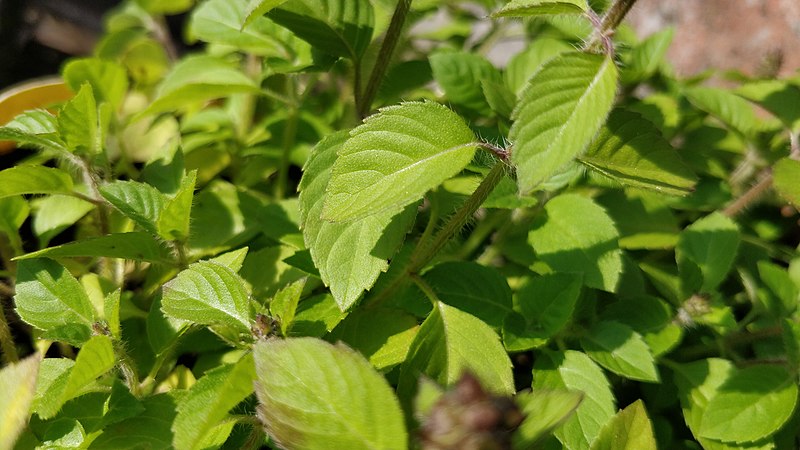 The tulsi plant may not be very large, but it provides many essential nutrients and is good for your health. The leaves are good sources of vitamins A, C, and K, as well as minerals such as iron, calcium, phosphorus, magnesium, and potassium. In addition, it is rich in fiber and protein. While this may not be enough for a meal, adding tulsi to your dishes adds flavor and nutrition. Tulsi can be eaten raw or brewed into a tea.
The tulsi plant may not be very large, but it provides many essential nutrients and is good for your health. The leaves are good sources of vitamins A, C, and K, as well as minerals such as iron, calcium, phosphorus, magnesium, and potassium. In addition, it is rich in fiber and protein. While this may not be enough for a meal, adding tulsi to your dishes adds flavor and nutrition. Tulsi can be eaten raw or brewed into a tea.
2. Tulsi Plant helps fight stress
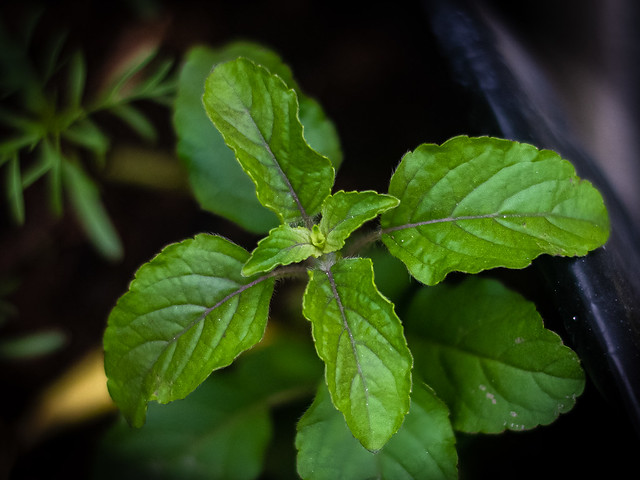 Plants have long been known for their stress-relieving properties. This is why you feel less stressed when you are outdoors in a park. Plants give positive energy and relax the mind. Even if you're short on space, there are plenty of houseplants you can grow alongside tulsi. Take the benefits of tulsi to de-stress one step further. It contains compounds like Ocimum Sides A and B that balance dopamine and serotonin levels in the brain. These are neurotransmitters that regulate bodily functions, metabolism, and emotions. Chewing tulsi leaves can calm the mind. It also helps reduce the effects of stress such as insomnia, depression, and nervousness. The sweet and earthy scent of this plant acts as a mood booster.
Plants have long been known for their stress-relieving properties. This is why you feel less stressed when you are outdoors in a park. Plants give positive energy and relax the mind. Even if you're short on space, there are plenty of houseplants you can grow alongside tulsi. Take the benefits of tulsi to de-stress one step further. It contains compounds like Ocimum Sides A and B that balance dopamine and serotonin levels in the brain. These are neurotransmitters that regulate bodily functions, metabolism, and emotions. Chewing tulsi leaves can calm the mind. It also helps reduce the effects of stress such as insomnia, depression, and nervousness. The sweet and earthy scent of this plant acts as a mood booster.
3. Tulsi strengthens the immune system
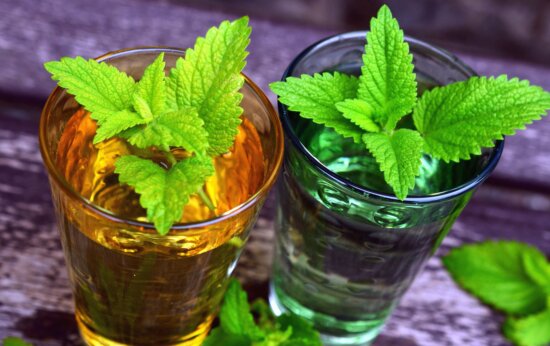 Tulsi is rich in zinc and vitamin C and also has antibacterial, antifungal, and antiviral properties. Taking a few leaves of this plant and brewing it can instantly boost immunity tea. The base of the immune system is in the intestine. Tulsi calms inflammation in the gut, which in turn shifts the balance of gut bacteria in favor of the good bacteria. Did you know that the phytochemicals in tulsi can also reduce the risk of lung, skin, and liver cancer? If you have kidney stones, tulsi acts as a mild diuretic and can help lower uric acid levels in your blood. Additionally, acetic acid helps break down stones, making them easier to pass out of the body.
Tulsi is rich in zinc and vitamin C and also has antibacterial, antifungal, and antiviral properties. Taking a few leaves of this plant and brewing it can instantly boost immunity tea. The base of the immune system is in the intestine. Tulsi calms inflammation in the gut, which in turn shifts the balance of gut bacteria in favor of the good bacteria. Did you know that the phytochemicals in tulsi can also reduce the risk of lung, skin, and liver cancer? If you have kidney stones, tulsi acts as a mild diuretic and can help lower uric acid levels in your blood. Additionally, acetic acid helps break down stones, making them easier to pass out of the body.
4. Tulsi plant has detoxifying effects
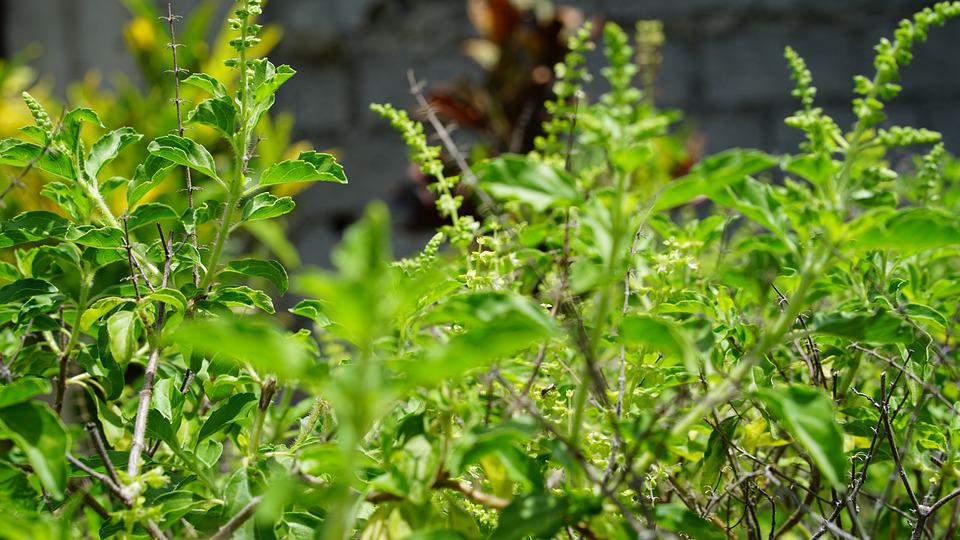 The tulsi plant in English is rightly called Holy Basil. It is considered a symbol of purity and detoxifies the environment in which it is placed. Keeping tulsi near doors and windows can purify the air in your home and remove toxins and harmful gases such as carbon dioxide, carbon monoxide, and sulfur dioxide. If you want to keep the tulsi indoors, remember to place it in a spot that gets plenty of sunlight, or move the pot outside every few days. Along with Tulsi, take a look at our other air purification plants.
The tulsi plant in English is rightly called Holy Basil. It is considered a symbol of purity and detoxifies the environment in which it is placed. Keeping tulsi near doors and windows can purify the air in your home and remove toxins and harmful gases such as carbon dioxide, carbon monoxide, and sulfur dioxide. If you want to keep the tulsi indoors, remember to place it in a spot that gets plenty of sunlight, or move the pot outside every few days. Along with Tulsi, take a look at our other air purification plants.
5. Tulsi plant can fight respiratory infections
 One of the most popular home remedies for colds is based on the strength of the tulsi leaf. Tulsi works well with almost all other Ayurvedic herbs. Contains eugenol, camphene and cineol. These elements, when squeezed and mixed with honey and ginger, help fight cough and cold, as well as asthma and bronchitis. Eugenol also has analgesic properties that can be helpful in combating body aches and migraines. It is also beneficial for diabetics.
One of the most popular home remedies for colds is based on the strength of the tulsi leaf. Tulsi works well with almost all other Ayurvedic herbs. Contains eugenol, camphene and cineol. These elements, when squeezed and mixed with honey and ginger, help fight cough and cold, as well as asthma and bronchitis. Eugenol also has analgesic properties that can be helpful in combating body aches and migraines. It is also beneficial for diabetics.
6. Tulsi Plant repels insects
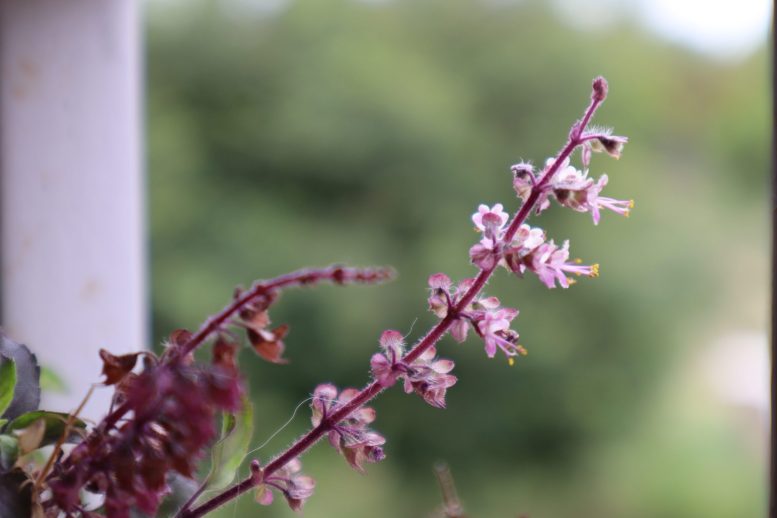 It is a mistake to think that having plants in the house is an invitation to insects. In fact, the tulsi plant is a great insect repellant. The oil extract from tulsi leaves has larvicidal properties. Mosquito larvae die before they are fully grown. Therefore, it keeps insects away and spreads a pleasant aroma. Dried tulsi leaves can also be kept with common materials like cedar and dal to repel insects. Even if leaves from a tulsi plant accidentally fall into your pan, they won't do any harm. You can even keep Tulsi dryer bags in your wardrobe.
It is a mistake to think that having plants in the house is an invitation to insects. In fact, the tulsi plant is a great insect repellant. The oil extract from tulsi leaves has larvicidal properties. Mosquito larvae die before they are fully grown. Therefore, it keeps insects away and spreads a pleasant aroma. Dried tulsi leaves can also be kept with common materials like cedar and dal to repel insects. Even if leaves from a tulsi plant accidentally fall into your pan, they won't do any harm. You can even keep Tulsi dryer bags in your wardrobe.
7. Tulsi plant benefits include improvement in complexion
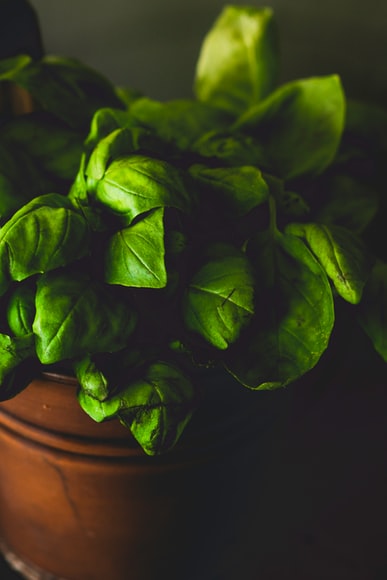 Tulsi can be used in a variety of ways to improve your complexion and strengthen your hair. Contains phytonutrients and antioxidants that protect the skin from damage caused by free radicals. Apart from having it in juice or juice, Tulsi can also be used to make homemade face masks. When used in this way, the ursolic acid in tulsi leaves helps improve skin elasticity and eliminate wrinkles and marks. The antifungal nature of tulsi even fights dandruff.
Tulsi can be used in a variety of ways to improve your complexion and strengthen your hair. Contains phytonutrients and antioxidants that protect the skin from damage caused by free radicals. Apart from having it in juice or juice, Tulsi can also be used to make homemade face masks. When used in this way, the ursolic acid in tulsi leaves helps improve skin elasticity and eliminate wrinkles and marks. The antifungal nature of tulsi even fights dandruff.
8. Tulsi plant is good for dental health
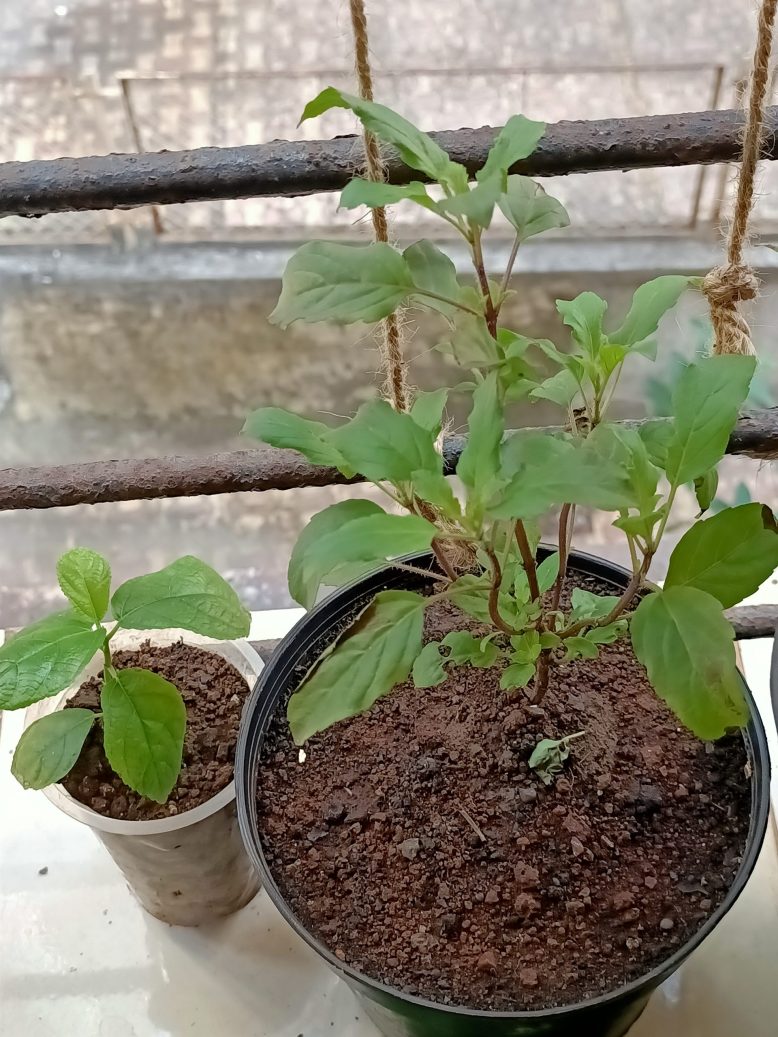 Tulsi is very beneficial for oral and dental health. If you look closely at the ingredient list for herbal toothpastes, you'll likely find tulsi mentioned. Tulsi strengthens the teeth and gums. It also helps soothe mouth ulcers. Therefore, having tulsi in your garden gives you an easy way to brighten up your smile.
Tulsi is very beneficial for oral and dental health. If you look closely at the ingredient list for herbal toothpastes, you'll likely find tulsi mentioned. Tulsi strengthens the teeth and gums. It also helps soothe mouth ulcers. Therefore, having tulsi in your garden gives you an easy way to brighten up your smile.
9. Tulsi plant benefits the heart
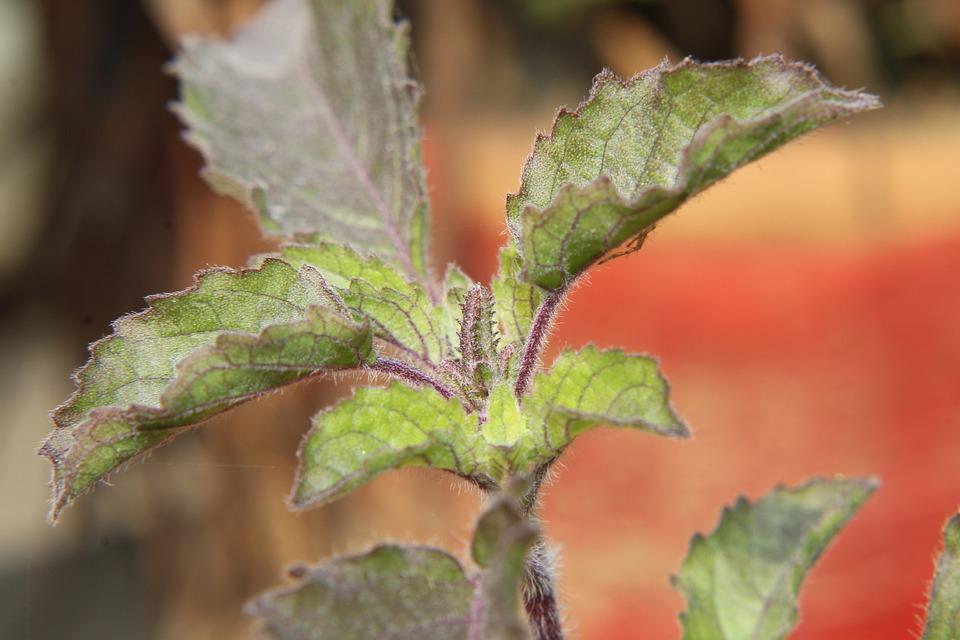 The vitamin C that makes tulsi an immune booster also makes it a good heart-healthy plant. The benefits of tulsi for the heart can also be attributed to antioxidants like eugenol, which is present in the plant. These antioxidants fight free radicals and reduce fat content and harmful cholesterol levels. As cholesterol levels drop, so does the risk of fatty deposits in the arteries and thus heart disease. Also Read - 10 ways to plan a low budget single floor house design
The vitamin C that makes tulsi an immune booster also makes it a good heart-healthy plant. The benefits of tulsi for the heart can also be attributed to antioxidants like eugenol, which is present in the plant. These antioxidants fight free radicals and reduce fat content and harmful cholesterol levels. As cholesterol levels drop, so does the risk of fatty deposits in the arteries and thus heart disease. Also Read - 10 ways to plan a low budget single floor house design
10. Tulsi is linked to prosperity
 Everyone wants to be prosperous. According to ancient Indian texts, having a tulsi plant at home can bring wealth and good luck. Did you know that she is also called the queen of herbs as she is believed to be the incarnation of goddess Lakshmi, the goddess of wealth? Here are some more Vastu tips for good luck.
Everyone wants to be prosperous. According to ancient Indian texts, having a tulsi plant at home can bring wealth and good luck. Did you know that she is also called the queen of herbs as she is believed to be the incarnation of goddess Lakshmi, the goddess of wealth? Here are some more Vastu tips for good luck.
Vastu for the benefits of tulsi
According to vastu, tulsi plants should always be planted in odd numbers. You can have 1,3,5 plants, etc. The north-northeast direction of the house is considered the best place to grow this herb. This is where you tend to attract the most positive energy. 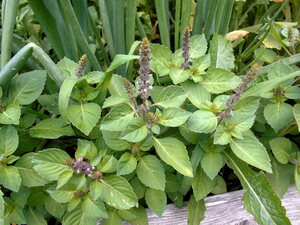 Tulsi reproduces easily when its seeds fall to the ground. Therefore, they should not be placed near litter boxes, shoes, or brooms. Instead, you should plant tulsi in flowering plants. Likewise, tulsi should not be planted near a cactus or thorny plant. This way, when you grow new plants, you will also be in good company. According to Vastu, the height at which a tulsi plant is grown is just as important as the soil in which it is grown. And it is better to plant it in a pot, and not in the ground. This container should be placed at a height above ground level. You can find special pots for tulsi plants on the market. Here are some other planter designs.
Tulsi reproduces easily when its seeds fall to the ground. Therefore, they should not be placed near litter boxes, shoes, or brooms. Instead, you should plant tulsi in flowering plants. Likewise, tulsi should not be planted near a cactus or thorny plant. This way, when you grow new plants, you will also be in good company. According to Vastu, the height at which a tulsi plant is grown is just as important as the soil in which it is grown. And it is better to plant it in a pot, and not in the ground. This container should be placed at a height above ground level. You can find special pots for tulsi plants on the market. Here are some other planter designs.
Maintenance Tips to Maximize the Benefits of Tulsi
Ideally, the tulsi plant should be grown outdoors. It works well when exposed to indirect sunlight for 6-8 hours every day. Here are some other tips.
- Tulsi should be planted in well-drained soil.
- It should be watered as the soil dries.
- Adding compost to your tulsi plant will make it healthier
- It should also be pruned regularly and all dead leaves removed.
- To keep your plant looking bushy, cut off the buds before they start to flower.
Conclusion
Of all the plants, tulsi is one of the most useful in your garden. It looks beautiful, spreads a beautiful scent, absorbs toxins to purify the air, and has vast medicinal benefits. If you feel inspired by the advantages of Tulsi, it's time to start your own business at Tulsi Factory. All you need is a few seeds and you will have your very own tulsi plant in no time. Also Read - 8 best normal house front elevation designs in Indian style




_1751437337.webp)

